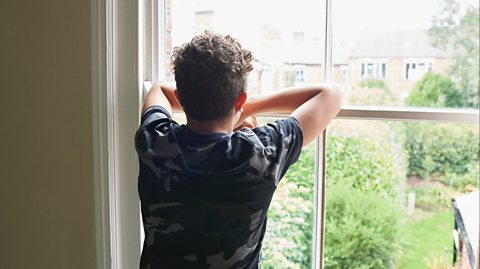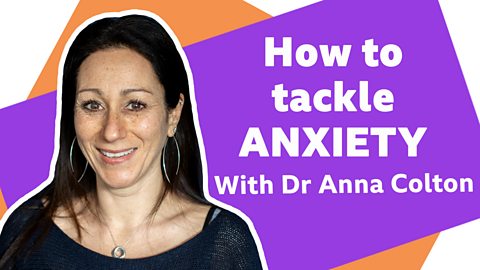Eating disorders are serious mental illnesses where people misuse food to try to cope with difficult feelings and situations. ItÔÇÖs not surprising that, for many young people who have eating disorders or could develop them, the anxiety and stress of the last few years has made it harder to cope.
If you think your child or teenager might have an eating disorder, there are warning signs to look out for and ways to get help and support. Here are some expert tips and advice, as well as helpful links for parents
4 things to look out for if you think your child might have an eating disorder

The sooner someone gets the support they need, the more chance they have of getting better. The first changes you might notice probably wont be physical, but to do with how they feel and act. Here are some things to think about if youre worried about your child
1. How do they feel about food?

Eating disorders arent really about food  the way someone treats food as part of their eating disorder is a way to cope with things theyre struggling with. This looks different from person to person, but most people experience some or all of
- Limiting how much they eat, by eating much less or by only eating certain types of food.
- Eating a lot of food at once without feeling any control over what theyÔÇÖre doing (bingeing).
- Getting rid of food theyÔÇÖve eaten by, for example, making themselves sick or doing lots of exercise (purging).
They may want lots of detail about whatÔÇÖs going into a meal, be concerned about how healthy the food theyÔÇÖre eating is, or find reasons not to join you for dinner, like saying theyÔÇÖre not hungry or theyÔÇÖll eat in their room.
They might not finish meals; or take a long time to do so ÔÇô cutting up food into tiny pieces or repeatedly pushing it around the plate can be ways that people delay eating or try to make it look as though theyÔÇÖve eaten more than they have.
You might find they often leave quickly after a meal ÔÇô going straight to the bathroom or to exercise could be a sign that theyÔÇÖre trying to get rid of the food theyÔÇÖve just eaten.
If someone is bingeing, you might notice that theyÔÇÖre buying lots of food, or that food is running out faster than you would expect. Binge eating isnÔÇÖt something the person feels any control over ÔÇô they might feel a lot of guilt and shame, and try to cover it up (for example, by running the shower to cover the sound of being sick).
2. Are they more withdrawn?

It may not be obvious if your child is starting to isolate themselves. They may be avoiding you and other people they live with, or, if youÔÇÖre not in a house together, they may be getting in touch less or not wanting to talk for very long. You may have noticed that theyÔÇÖre catching up with friends less often, or that theyÔÇÖre reluctant to partipate in the hobbies they've enjoyed in the past.
They may also seem to be losing interest in solitary activities that theyÔÇÖve enjoyed and might replace these with food or exercise-based hobbies that seem to be filling a lot of their time.
3. Have they lost their confidence?

Eating disorders can really affect someoneÔÇÖs confidence and self-esteem. This might mean they have body image concerns ÔÇô they may be unhappy with their appearance, negatively compare themselves to other people, regularly check their reflection or weigh themselves, or alternatively avoid the mirror or scales. But it might affect their confidence in other areas too, such as school, hobbies, or relationships, and you may find that they set very high standards for themselves.
4. WhatÔÇÖs their mood like?
Having an eating disorder affects every area of a personÔÇÖs life. They may seem more anxious or unhappy, not just around food, their weight or shape, but other things too. You might find theyÔÇÖre more irritable or go through mood swings, and they could struggle to concentrate. Often people experience an eating disorder like ÔÇ£a voice in their headÔÇØ ÔÇô this eating disorder voice might make them behave in ways that seem very out of character, and itÔÇÖs good to remember that this is not their fault.
How can you help?

Key to helping your child is to do so as quickly as possible. Its much more likely that someone will get better if they get the support they need early on. Heres what you can do to approach them about your concerns
- Make sure youÔÇÖre speaking to them in a space that feels safe. ThatÔÇÖs probably somewhere quiet where you wonÔÇÖt be disturbed, but think about mood, too (neither of you should feel upset or angry) and about timing (avoid talking just before or after meals).
- While it may not be possible to completely avoid it, try to steer clear of food or weight. Try to focus instead on changes to their behaviour or things that are concerning you.
- Remember, they may feel defensive, as the eating disorder is often a way to cope that they may be reluctant to give up. They also may not be aware that they are ill. Speak to them in a way that makes it clear youÔÇÖre on their side and arenÔÇÖt accusing them of doing anything wrong ÔÇô ÔÇ£IÔÇÖve noticed you seem quite stressed at the moment; how can I help?ÔÇØ is a better way to raise concerns, for example, than ÔÇ£Why are you so stressed?ÔÇØ
- If they do get angry or deny thereÔÇÖs anything wrong, donÔÇÖt be disheartened or put off. Reassure them that your concern is with their wellbeing and they can talk to you any time. Try to pick up the conversation again as soon as you can.
- Book a GP appointment as soon as possible, so that you can ask for a referral to an eating disorders specialist. Eating disorder charity Beat to take along to a GP appointment, to help you get a quick a referral as possible.

- Á■▒▓╣│┘ÔÇÖs and are available 365 days a year.
- Online support groups include for carers, where you can get advice and support from other people supporting a loved one, and an online chat group for anyone with an eating disorder to share concerns and advice with each other.
- Á■▒▓╣│┘ÔÇÖs website has more information about and
Autistic people can often have a difficult relationship with food. In this article, Christine McGuinness: Unmasking My Autism - advice for parents, an expert discusses how, ÔÇ£approximately 25% of females going to services for anorexia may also meet diagnostic criteria for autism, but have never had the latter diagnosis.ÔÇØ
The ┤¾¤¾┤½├¢ Action Line has information on other charities that can offer help.

More from ┤¾¤¾┤½├¢ Bitesize Parents' ToolkitÔǪ
Parents' Toolkit
Fun activities, real-life stories, wellbeing support and loads of helpful advice - we're here for you and your child.

How to tackle anxiety with Dr Anna
Calming techniques to help parents and children manage their anxiety.

How to manage your childÔÇÖs online world without clashing
Children and teens spend lots of time online for school and leisure, which can be a worry for parents. Here's some advice on managing your childÔÇÖs screen time.

An A-Z of LGBTQ+ language for speaking to your child
Using the right language around LGBTQ+ can often feel like a minefield - here's how you can learn from and listen to your child.

Michael Mosley: Five tips for helping your kids sleep well
Dr Michael Mosley offers advice on improving health and concentration through better sleep habits. Here are his tips for parents to help their kids.

How to transform a smaller space for study or work
Many of us are having to make do with the little spaces in our homes for work or study. Here's how to make them feel bigger!
